West Bengal Payment of Gratuity Rules, 1973
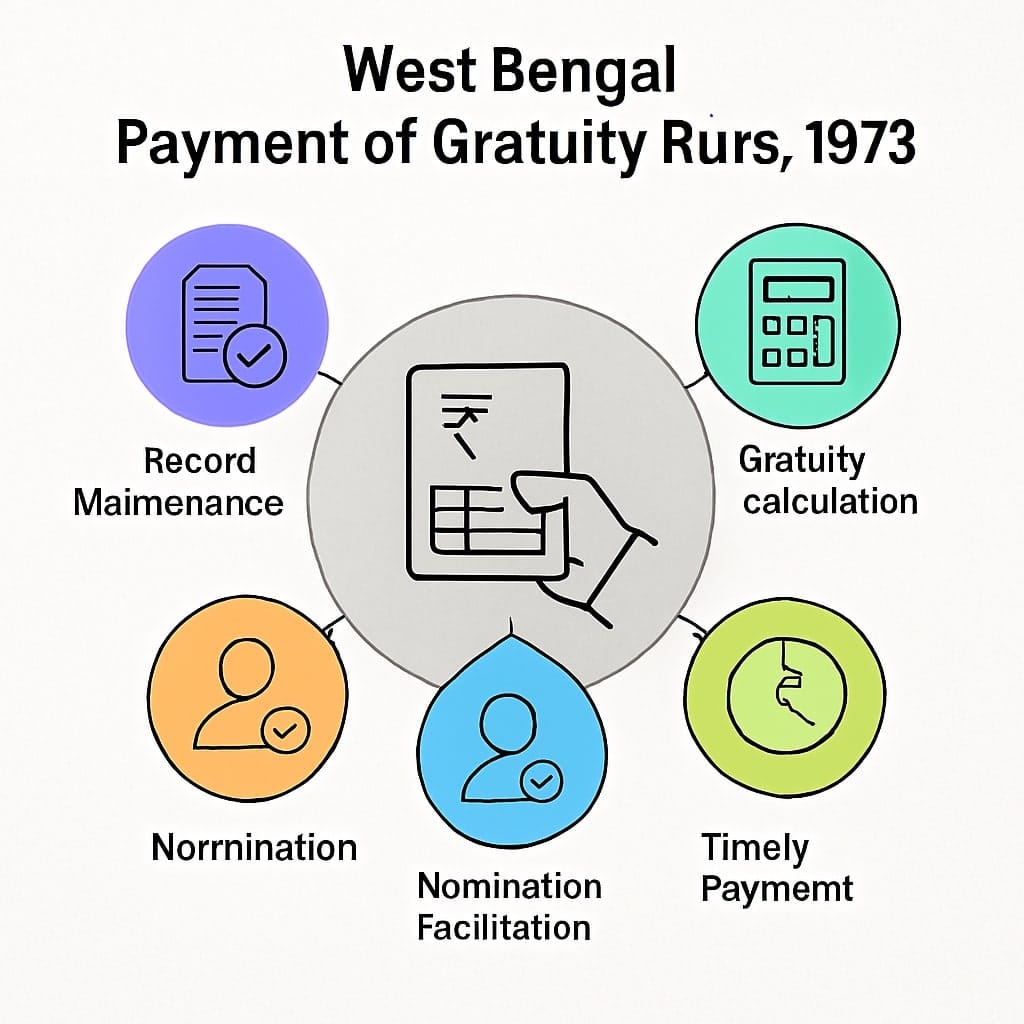
The West Bengal Payment of Gratuity Rules, 1973 were notified to implement the Payment of Gratuity Act, 1972 within the State of West Bengal. These rules lay down the procedure for employers and employees in matters of gratuity, including the format for notices, timelines for applications, methods of calculation, and the role of the Controlling Authority. The purpose is to ensure uniformity and clarity in gratuity administration across establishments in West Bengal.
West Bengal Payment of Wages Rules, 1958
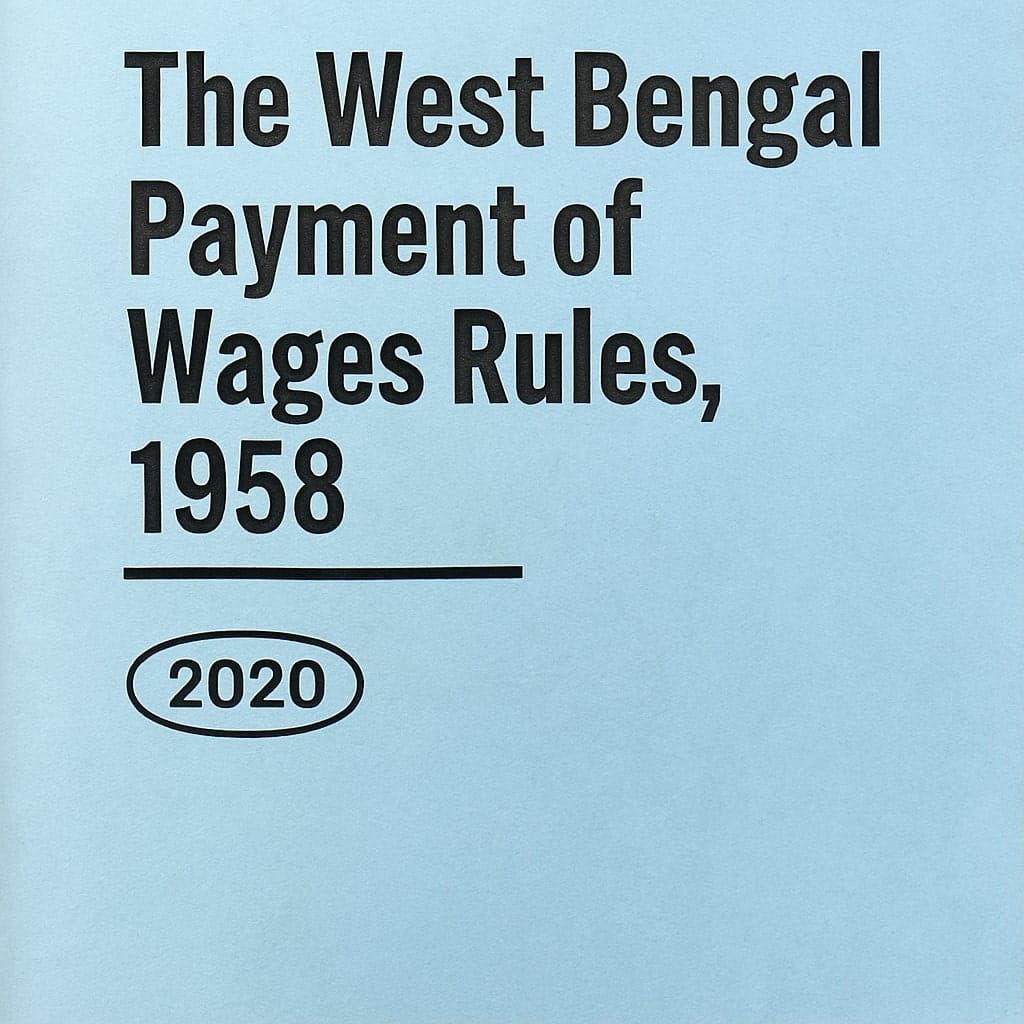
The Payment of Wages Act, 1936 was enacted to regulate the timely payment of wages to certain classes of employed persons and to prevent unauthorized deductions. To give effect to the provisions of the Act, individual states framed their own rules. In West Bengal, the Payment of Wages Rules, 1958 were introduced, laying down detailed procedures regarding fixation of wage periods, maintenance of registers, permissible deductions, display requirements, and submission of returns. These rules were designed to safeguard workers’ interests, bring transparency to wage disbursement, and ensure accountability of employers.
Haryana: Punjab Payment of Wages Rules, 1937
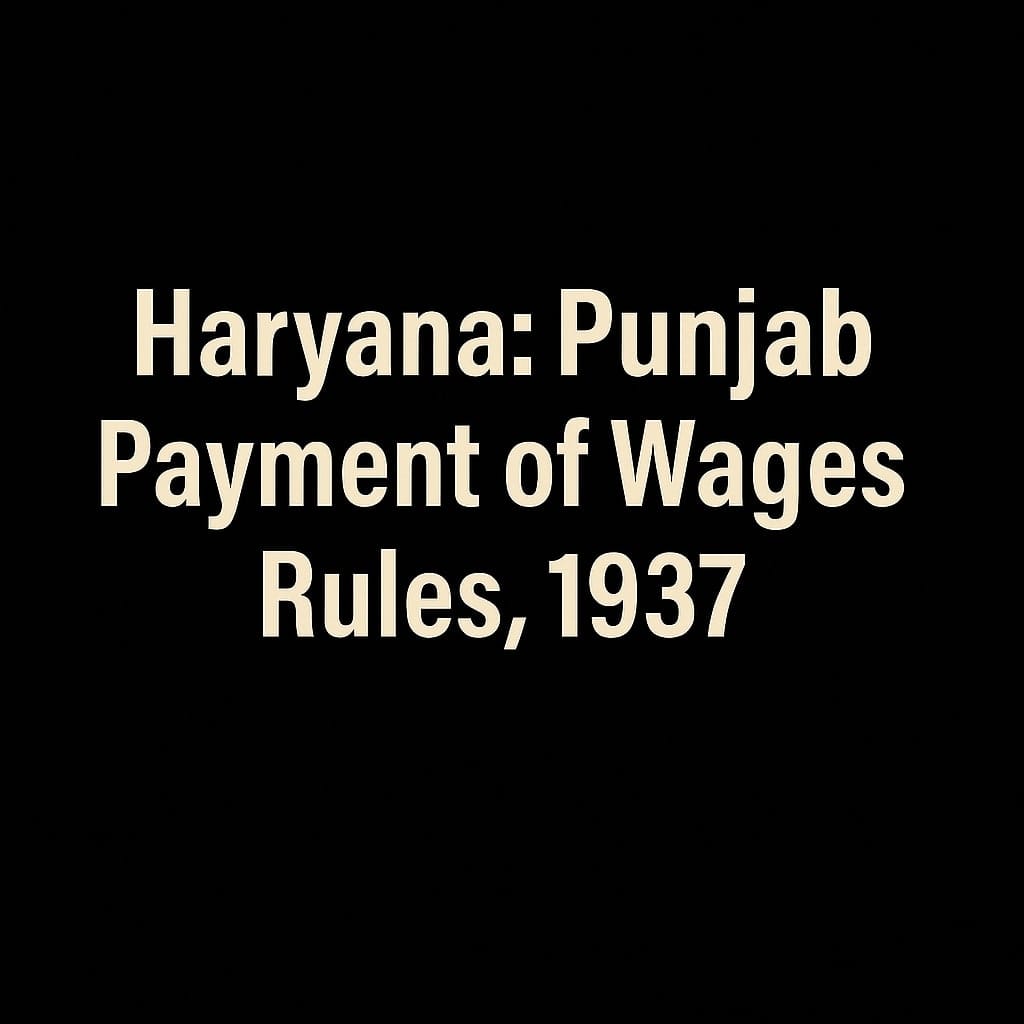
The Haryana: Punjab Payment of Wages Rules, 1937, as extended to Haryana, have been framed under the Payment of Wages Act, 1936. These rules regulate the timely payment of wages, permissible deductions, maintenance of registers, display of notices, and the imposition of fines. The objective is to protect employees from arbitrary wage deductions, ensure transparency in wage administration, and provide legal recourse in case of violations.
Gujarat Industrial Dispute Rules, 1966
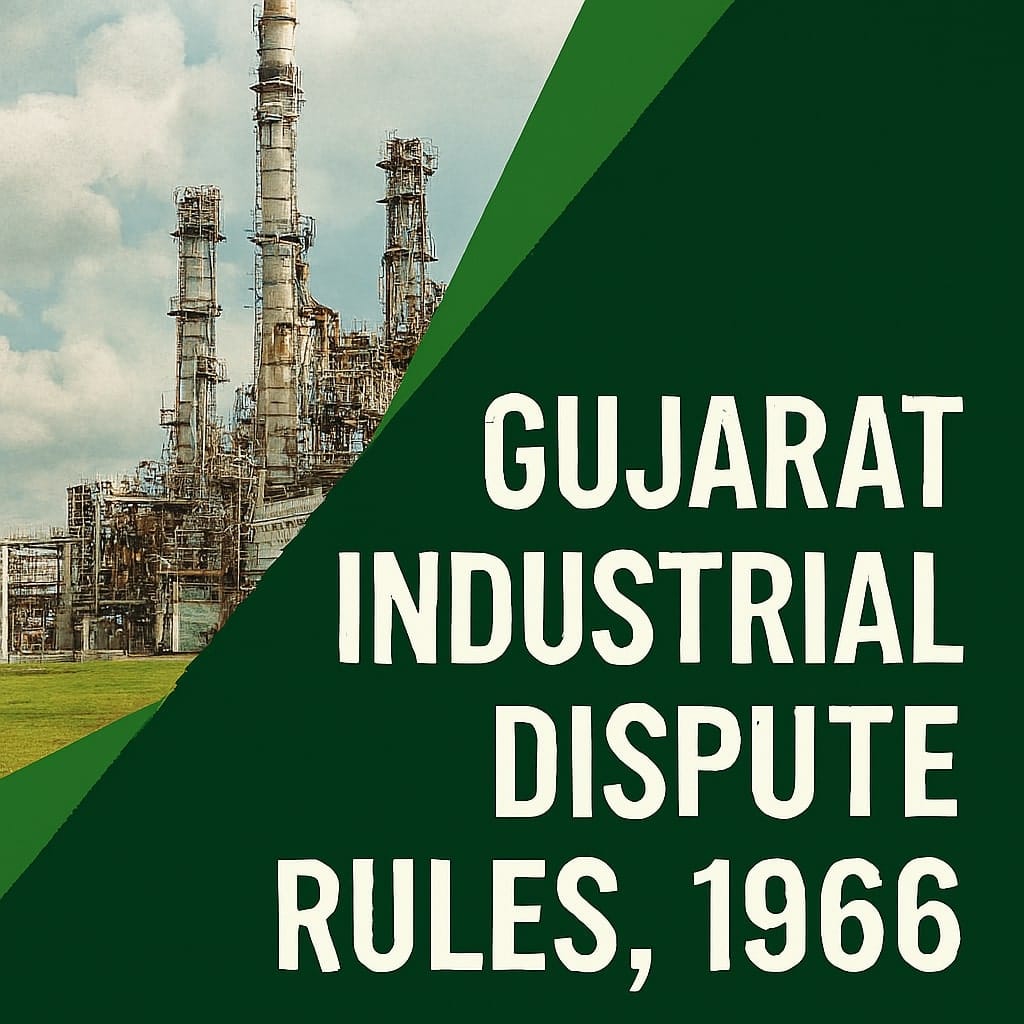
The Industrial Disputes Act, 1947, was enacted with the objective of maintaining industrial peace and harmony by providing a legal framework for the investigation and settlement of disputes between employers and workmen. The Act came into force on April 1, 1947, and extends to the whole of India, with the exception of Jammu and Kashmir (except in cases relating to workmen employed under the Government of India). Over the years, various states have framed rules to implement the provisions of the Act, and the Gujarat Industrial Disputes Rules represent one such framework. These rules provide detailed procedures for dispute resolution, formation of works committees, grievance redressal, retrenchment, lay-offs, closures, strikes, and lock-outs. Together, the Act and Rules aim to balance the rights of workmen and employers, ensuring industrial stability and fair treatment of workers while enabling businesses to function smoothly.
Single Integrated Annual Return Filing in West Bengal
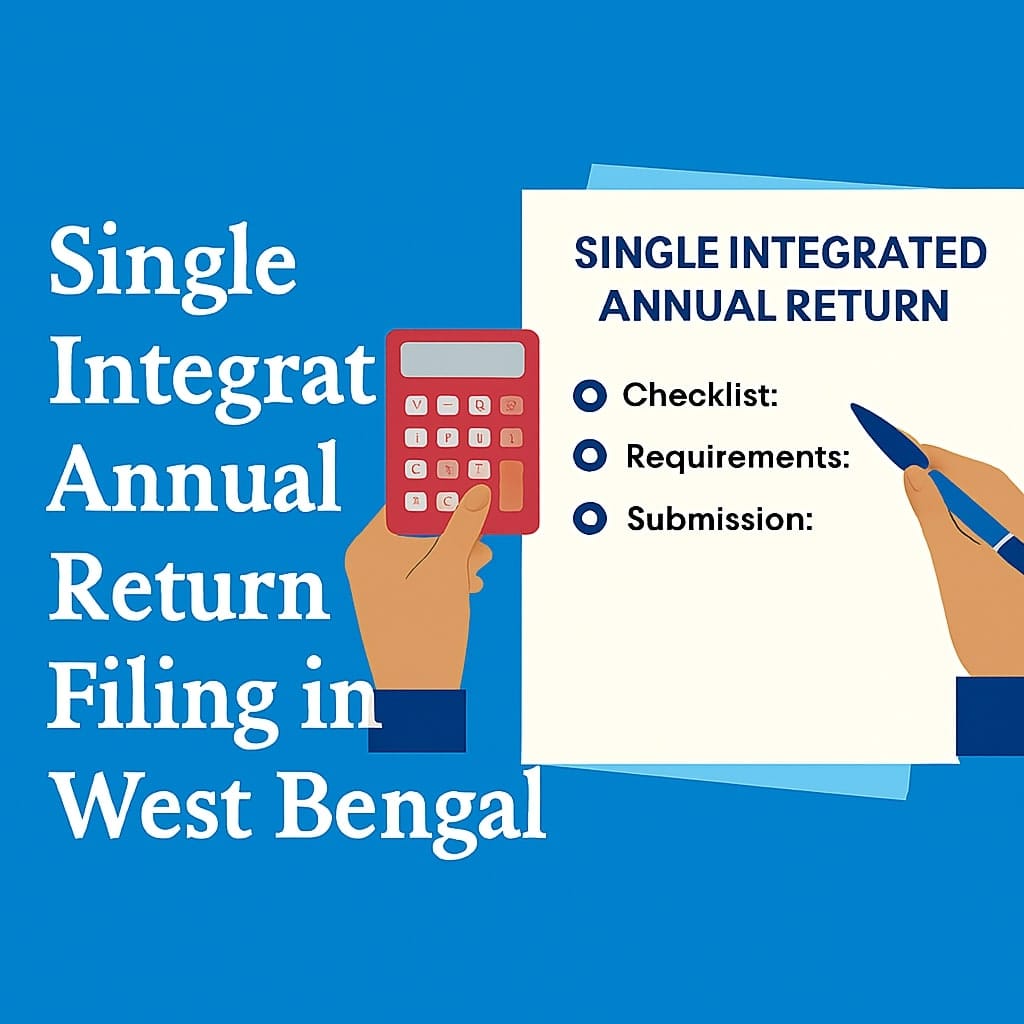
The Government of West Bengal, in alignment with the Ease of Doing Business (EoDB) reforms and the mandate of the Labour Department, has introduced the system of Single Integrated Return Filing. This initiative consolidates multiple statutory returns that establishments were earlier required to submit separately under various labour legislations.
Kerala Municipality Act, 1994
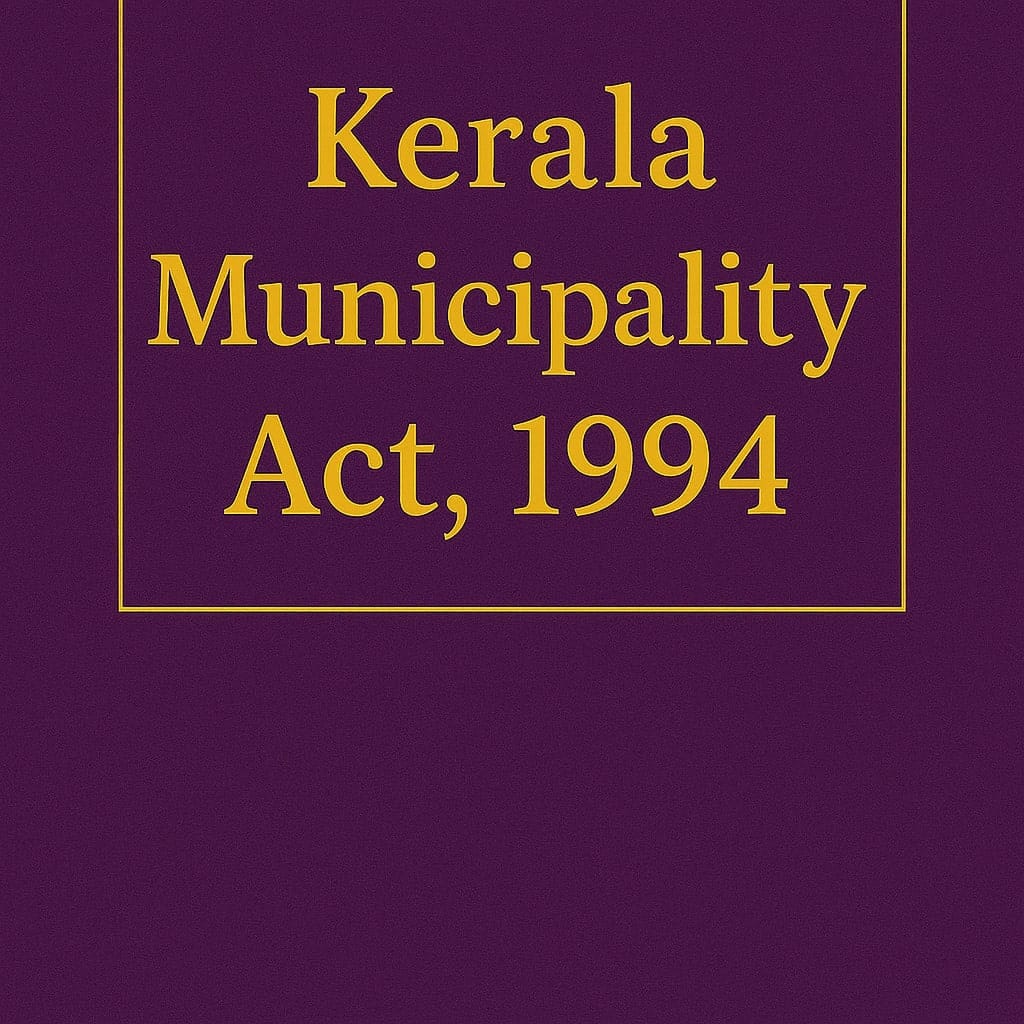
The Kerala Municipality Act, 1994 was enacted to consolidate and amend the laws relating to municipalities in Kerala. It establishes a framework for the constitution, governance, powers, and responsibilities of municipal authorities. Among its provisions, it also prescribes levies such as Professional Tax, enabling municipalities to generate local revenue for public services and civic administration.
Workmen’s Compensation Rules 1924 as amended by Haryana Govt Nt dt 5.6.95
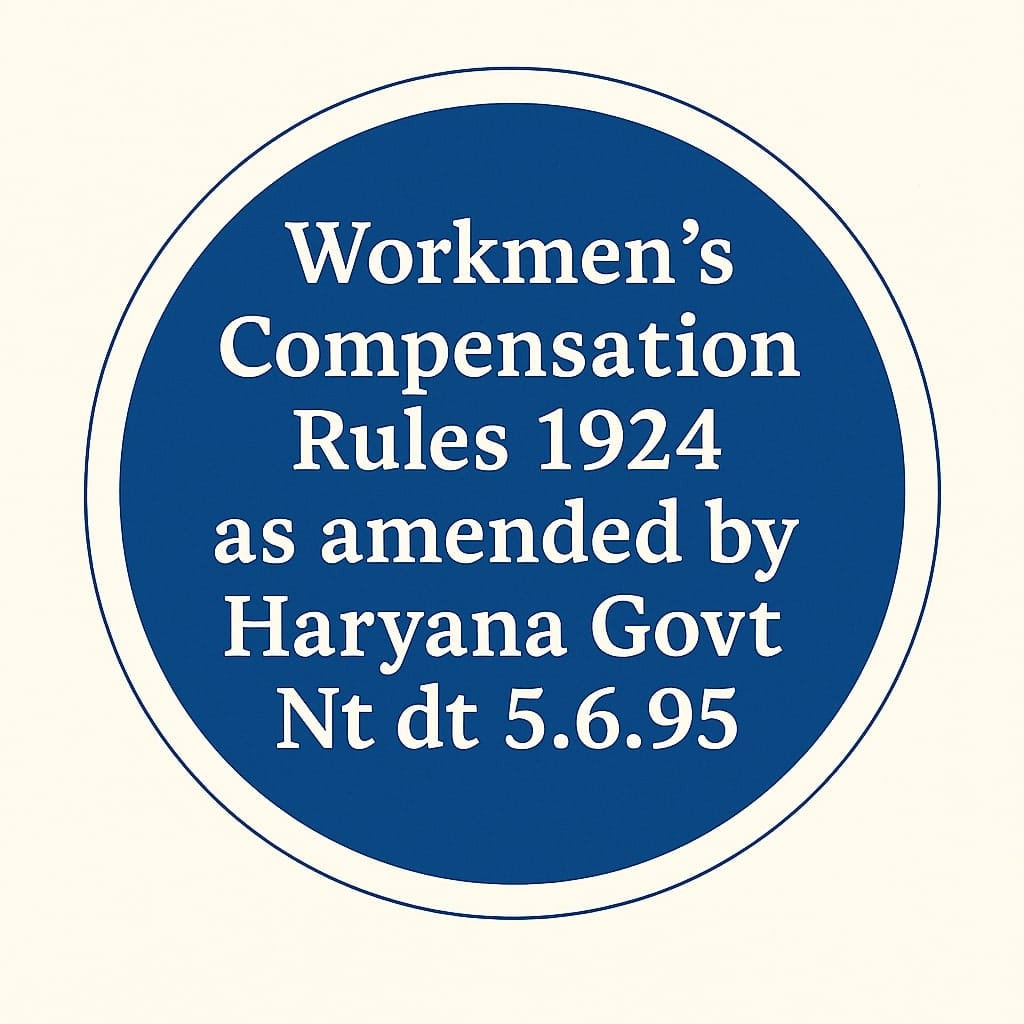
The Employee’s Compensation Act, 1923 (formerly Workmen’s Compensation Act), is a social security legislation aimed at providing financial protection to employees and their dependents in case of workplace accidents, injuries, or occupational diseases. In Haryana, this law is enforced with clear provisions specifying employer liability, compensation amounts, and procedures in the event of work-related mishaps. The Act reflects the principle that employees who suffer harm during the course of employment should be duly compensated by their employer, regardless of fault in most cases. The Workmen’s Compensation Rules, 1924 provide detail procedural obligations for employers to ensure injured employees or their dependents receive due compensation for workplace-related injuries or fatalities. The rules outline forms, timelines, responsibilities, and penalty clauses for defaulting employers.
Employees’ State Insurance Act, 1948

The Employees’ State Insurance Act, 1948, was enacted to provide social security and health benefits to employees in India. It establishes a comprehensive insurance scheme covering medical care, sickness benefits, maternity benefits, disability benefits, and dependents’ benefits in case of employment-related injuries or death. The Act is administered by the Employees’ State Insurance Corporation (ESIC) under the Ministry of Labour and Employment.
Consolidated Annual Return Filing in Telangana
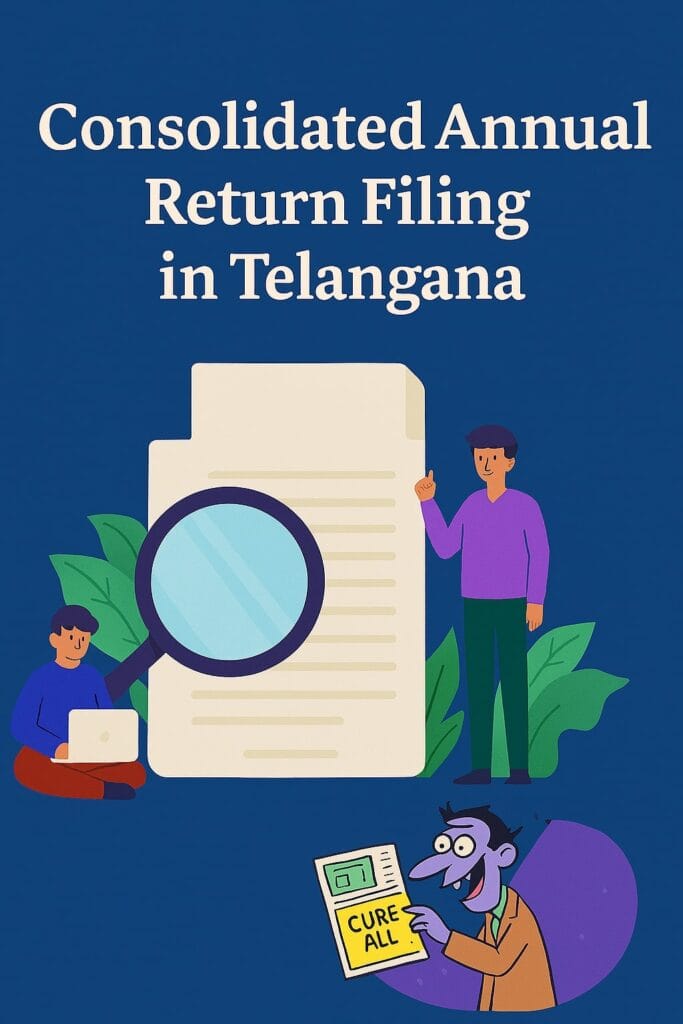
To make compliance with labour laws simpler and to avoid the duplication of effort by employers, the Government of Telangana introduced a Consolidated Annual Return system. Instead of submitting multiple separate returns under different labour legislations, employers now have the option to file one combined return along with maintaining integrated registers
Gujarat Child and Adolescent Labour (Prohibition and Regulation) Rules, 1994

The Child and Adolescent Labour (Prohibition and Regulation) Act, 1986 was enacted to prohibit the engagement of children below 14 years of age in certain employments and to regulate the conditions of work of adolescents (14–18 years). The Act is a key piece of legislation to safeguard child rights, aligned with constitutional directives and international conventions, and has been amended over time to expand protection, including the complete ban on employment of children in all occupations and processes.
